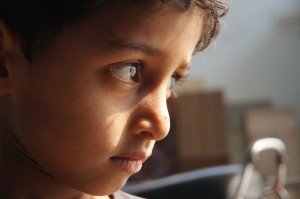How Do I Tell My Kids About My Divorce?
Meeting all your legal needs
Discussing divorce with your kids is never easy, no matter how young or old they may be. Seeing the reaction and pain that your child may have will take a toll on you. The experienced family law attorneys at Hodges, Doughty & Carson, PLLC want to help guide you through this tricky and emotional process.
Begin With a Safe Space
One of the most important aspects of the conversation you are about to have is that your kids feel comfortable. It’s important that you don’t lead them to believe the worst. You are all still family, even after the divorce. We suggest finding a safe, calm space. This may be your living room or the kitchen table, but private is better. Your kids will feel more comfortable at home than at a restaurant because they can process the situation more clearly when they feel physically safe.
Make a Plan
We also suggest planning out what you are going to say to your kids before the conversation happens. This plan of action will help ease the conversation, and it will help you prepare what you want to say and how you want to respond to difficult questions that may arise.
Talk to Someone Else
If you feel stuck beforehand, it can’t hurt to reach out to a family therapist to guide you through the conversation. They will help you create your plan, or “script,” so you’ll feel more at ease about what you should be saying.
Keep It Simple
You can explain that you’ll be getting divorced without going into too much detail. Your children don’t need to know all of the details of the split, just that you still love them. You and your spouse should present this information together so your kids only hear one story. If you discuss your divorce with them separately, they might think it’s normal to take sides. The goal should be to present a united decision that was made amicably.
Focus on the Positive
During the talk, explain to your child or children that life will be as similar as possible to how it is now. Tell them that you both love them very much. Unfortunately, kids may believe that the divorce is a result of something that they did, so explain to them why this is not their fault. If there are other families in the neighborhood that successfully co-parent, it may be helpful to use them as an example of showing how your divorce will not necessarily be a bad thing for them.
Don’t Play the Blame Game
Another important part of talking about this subject with your kids is remembering to avoid blame. You don’t want them to think you and your spouse hate each other. You want to show your children that you are still a family and you are still a team, even if that no longer involves the two of you being married.
Explain What Happens Next
The entire process will be a bit easier if your children at least understand what is going to happen, even if they don’t quite understand why. Explain to them that they might be staying with one parent for a week and then the other the next week. Try to provide them with comfort during this time of change.
Leave Time for Questions
You should prepare yourself for the worst. Your child or children may cry or be angry, upset, etc., and you don’t want to leave without having every question answered. Put it all on the table, and let them know that you are always there to continue discussing the divorce and answering any questions they may have.
While discussing your divorce will be a difficult conversation, we hope this guide will help you through it. Hopefully, if you frame the situation in a more positive light, your children will be understanding. However, it’s always best to prepare for the worst and have answers to tough questions ready beforehand. To learn more about how we can help you through your divorce, contact the attorneys at Hodges, Doughty & Carson, PLLC today.
Hodges, Doughty & Carson, PLLC is a diversified general practice and civil law firm in Knoxville. We serve a wide range of clients, including Tennessee residents and out-of-state clients.

